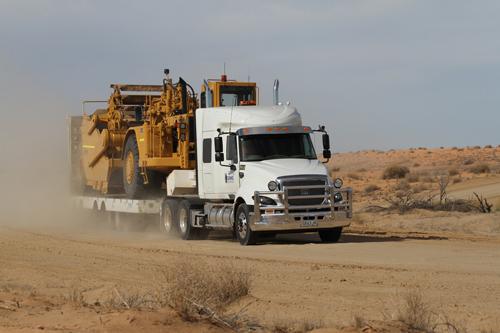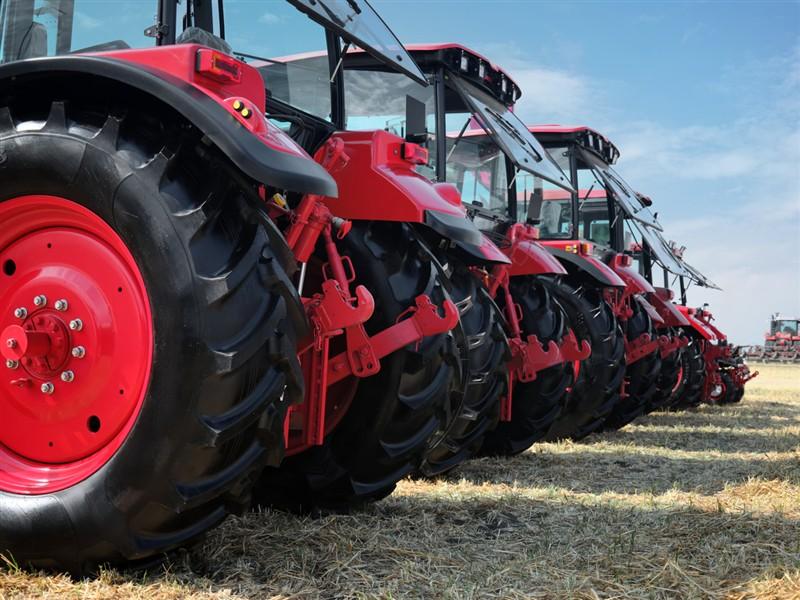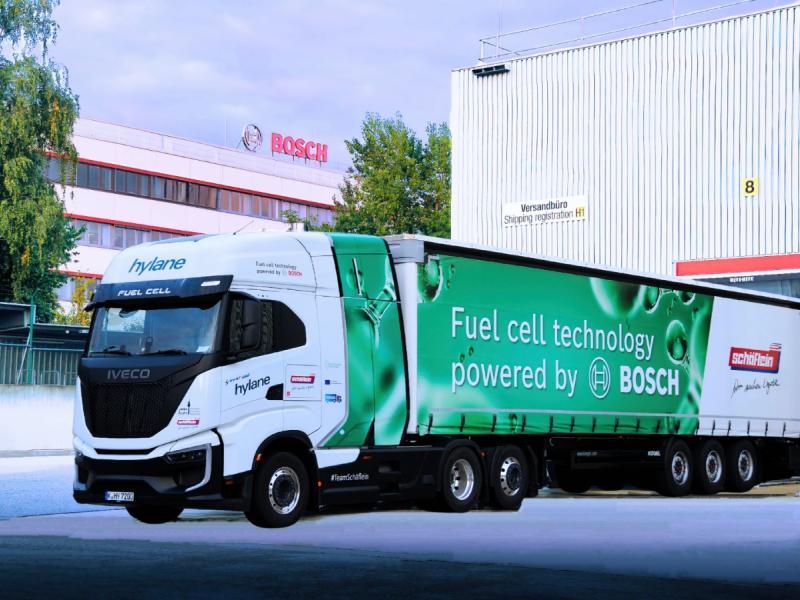A lifetime living and working in some of Australia’s harshest and most isolated regions has taught Neil Dunn a simple, uncompromising principle about endurance. The way he sees it, you either have what it takes to survive and succeed in tough country, or you don’t.
He applies the same steadfast principle to machines of every sort and since early 2013 Cat trucks have been showing all the inherent strengths needed to endure a life lived hard midst the wild extremes of South Australia’s Strzelecki Desert.
Neil is founder and managing director of Dunns Earthmoving, a remarkably resourceful and self-reliant company operating from a remote base roughly 100 km west of Moomba in the rich oil and gas fields of the Cooper Basin.
The scale of the operation forged by Neil and wife Sue is as surprising as it is isolated.
With two publicly-listed oil and gas companies as its chief clients, Dunns Earthmoving has evolved dramatically in little more than a decade.
What started in 2003 as a simple two-man operation living rough in desert isolation with a few pieces of second-hand earthmoving plant has grown to a business employing more than 100 resilient and variously skilled people who maintain and operate an immense equipment inventory of trucks, service and support vehicles, and almost every form of earthmoving plant from bulldozers to scrapers, graders, excavators and skid-steers.
Yet as Sue Dunn emphasises, it is an enterprise built from the ground up by the resourcefulness and tenacious work ethic of her husband, born and raised in drought-riddled cattle country and ingrained with a natural affinity for remote and arid regions.
“This is not easy country,” says a stern Neil Dunn, citing the extremes of summer temperatures regularly at 50 degrees Celsius and winter nights that dip well below freezing as normal parts of a business that contends daily with the fierce conditions and high costs of operating in severe isolation.
“We specialise in remote area earthmoving and road works, repairing existing roads and making new ones,” he explains.
“With new roads we’re basically just given a GPS location after all the environmental studies and cultural heritage sites have been identified, and carve a track through virgin country.
“On top of that we do the earthworks for drill rigs, tank farms and basically anything else that needs a machine or a truck to move dirt.
“It probably sounds simple enough but there’s a lot to it. You need to know what you’re doing. This country is very unforgiving.”
With hundreds of oil and gas wells dotted across a massive expanse of the Cooper Basin, Dunn teams operate from self-contained mobile camps in a radius of several hundred kilometres in every direction from the main base where around 50 people are permanently stationed.
“Equipment reliability is everything,” Neil says firmly. “We’re a long way from anywhere and this country’s quick to teach you what works and what doesn’t.”
In earthmoving equipment, Caterpillar is the preferred brand and despite the operation’s isolation and entrenched self-sufficiency, Neil points to the back-up of South Australia Cat dealer Cavpower and his high regard for Cat’s dependable C15 engine as the initial considerations in choosing to add Cat trucks to the fleet.
His first Cat truck, a CT630 day cab model, arrived in early 2013 and although there were initially “a few annoying little things”, three spacious CT630LS models have since joined the operation to haul a wide variety of trailers including heavily laden water tankers and low loaders.
“They’re all doing pretty good,” Neil says of the four Cats. “They’re at work every day and while ever they’re doing that, I don’t have much to complain about.
“Like I said, it’s not easy out here. Road conditions are the killer and it doesn’t matter what brand of truck or machine it is, something breaks eventually. We expect it. What’s important is that it doesn’t keep breaking.”
On the ability of the Cat trucks to cope with such demanding conditions, a blunt Neil Dunn says the brand simply wouldn’t get a second chance if it wasn’t already showing acceptable levels of endurance.
“There’s no doubt about it. They wouldn’t be here if they weren’t doing the job,” he concludes with absolute authority.






